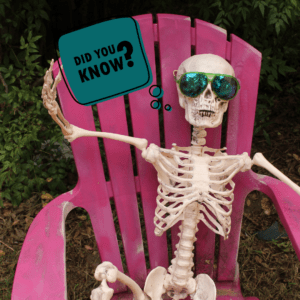Muscle pain is tender and often constant, making everyday life and even the simplest movements uncomfortable.
If you’re experiencing muscle pain, you may be fed up. And we get why! 😤
Muscle pain is tender and often constant, making everyday life and even the simplest movements uncomfortable 😣
You could be experiencing a muscle spasm, a muscle cramp, or an actual strain or tear of the muscle. I’m going to be discussing the difference between these types of muscle pain and how we can treat the problem ❤️
Muscle spasm or muscle cramps: What’s the difference?
When you come to us, the first thing we determine is whether the pain and discomfort you are feeling is a muscle spasm, a muscle cramp or muscle strain 👌🏻
Muscle spasms are when the muscle involuntarily contracts and then relaxes. This often happens suddenly and without warning. It can also be very painful. This is commonly caused by the irritation of the nerve which controls the muscle.
On the other hand, a muscle cramp lasts longer then a spasm and is often a powerful contraction and are usually related to chemical imbalances in the muscle 🙅🏼♂️
The good news is, we can help. Keep reading!
What causes cramps?
A nutrient deficiency or dehydration usually triggers muscle cramps. Dehydration is made worse by hot weather and exercise as you sweat. Remember to always stay hydrated to avoid cramps! 🚰
A lack of nutrient intake can also be the reason you are getting muscle cramps. Electrolytes and minerals are crucial to keeping your body balanced. A lack of magnesium, calcium, sodium, or potassium can contribute to cramping.
Diet tip!
Ensure that your diet includes:
· Bananas 🍌
· Nuts 🥜
· Sweet potatoes 🍠
· Spinach 🥬
· Yoghurt 🥣
If you are not managing to get enough minerals in your diet, you may consider taking supplements. (If you are taking other medications, please speak to your pharmacist or GP first).
What causes muscle spasms?
The most common cause of a muscle spasm is trapped nerves. Yes, it’s as painful 😫 as it sounds. This impact could be caused by inflammation irritating the nerves, bone spurs, repetitive motion, injury, or herniated discs.
When any of these irritates the nerve, often the response is pain 😪 To prevent further movement your muscles, respond by tightening or spasming. The pain can be brief and sharp, or it can be a throbbing sensation – both make it hard to move ❌ A pinched nerve can also cause tingling, numbness, a pins and needles sensation or muscle weakness.
How we treat muscle spasms?
As horrible as muscle spasms are, there is – thankfully – something that can be done about them 👏🏻👏🏻👏🏻 Firstly, we check for and work on the underlying cause of the nerve irritation. Along side this we often use dry needling (a form of acupuncture) and massage to relieve the muscle spasm and tension.
If you need further support, just click the contact us button below —>





